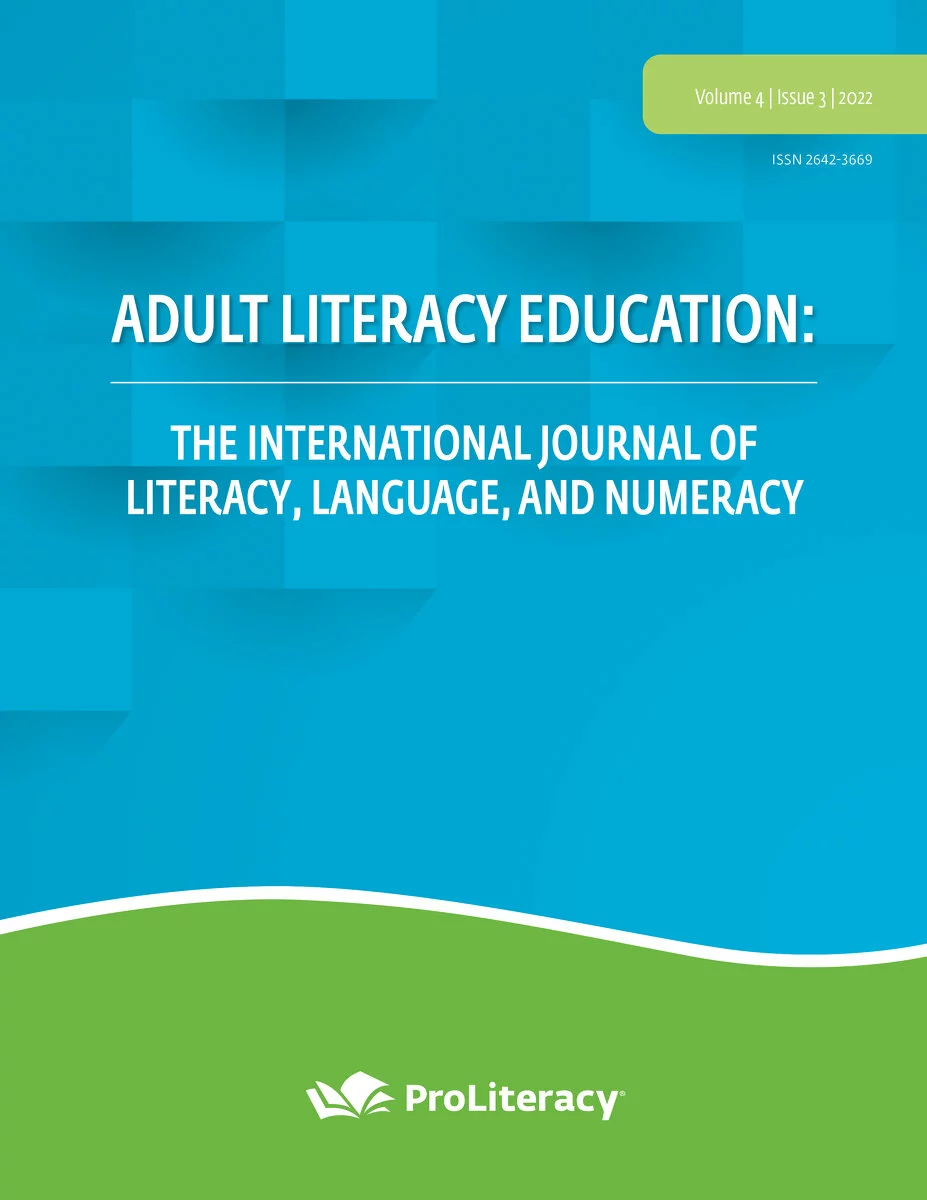Journal
This issue of the journal includes:
Research Article
Reports from the Field
- Digital Financial Literacy
- Learning from Each Other: A Partnership Between an Affordable Housing Organization and a Digital Literacy Research Organization
- Finally, Some Guidance! Using the Triple E Framework to Shape Technology Integration
- A Journey Through the Digital World: Fostering Digital Problem Solving Among Adult Learners
Forum: What’s in a Name
- Adult Foundational Education: Why a New Name and Definition Is Needed
- Adult Foundational Education: A Fresh Seed Sown?
- Demystifying a Field: Wonderings on Classifying for Clarity in Adult Education
Book Review
Resource Review
Research Digest
